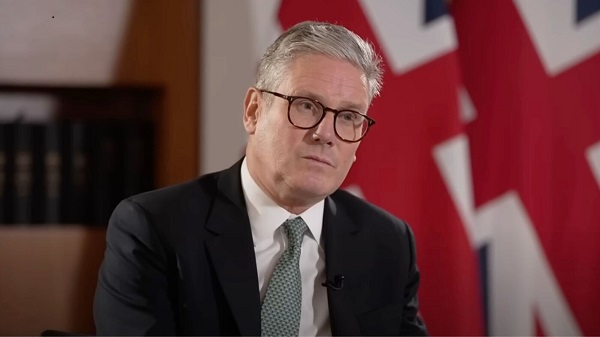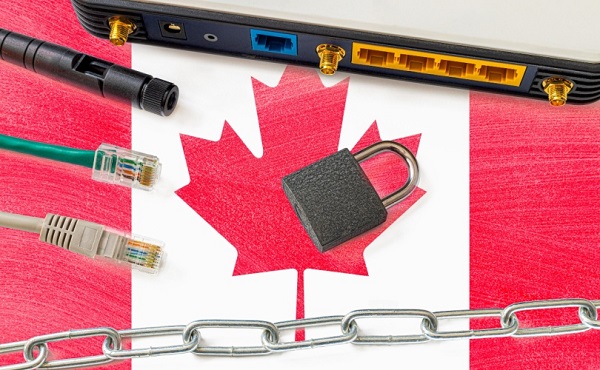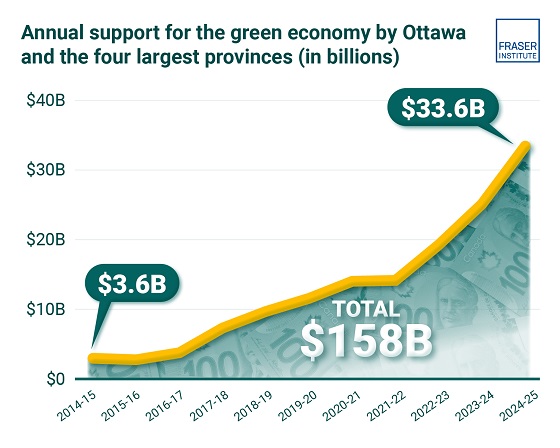Censorship Industrial Complex
UK Could Weaken Online Censorship Law To Avoid US Trade Battle

|
As European leaders scramble to shield their economies from impending US tariffs, the UK’s Labour government appears ready to make significant concessions. Facing the risk of economic fallout, Prime Minister Keir Starmer’s administration has reportedly signaled to Washington that it is open to revising the controversial and dangerous Online Safety Act — legislation critics have described as an aggressive censorship regime.
The Act, which gives UK regulators the power to fine tech companies for failing to remove vaguely defined “harmful content,” has been a major point of contention between the two allies and has become a major threat to free speech online. The Trump administration has been especially vocal in its opposition, viewing the law as an affront to free speech and a potential financial burden on US tech giants.
According to The Telegraph:
“Downing Street is willing to renegotiate elements of the Act in order to strike a trade deal, should it be raised by the US, The Telegraph understands. The law has been heavily criticized by free speech advocates and economists, who argue its broad provisions to tackle harmful online content could lead to excessive censorship and deter investment from American tech giants.”
The Online Safety Act arms UK media regulator Ofcom with sweeping new authority over social media platforms, enabling the imposition of multimillion-pound fines for failing to police content according to government directives. While supporters claim the law is necessary to protect users, critics argue that its vague wording and punitive approach encourage preemptive censorship — where platforms remove lawful content simply to avoid regulatory punishment.
President Donald Trump’s return to the White House has intensified scrutiny of the law. The president, who has been highly critical of social media censorship, has surrounded himself with influential voices in the tech world, including Elon Musk, whose platform, X, is already preparing to challenge Ofcom’s authority.
“Another source close to the Trump’s (sic) administration suggested the act was viewed as ‘Orwellian’ in the US and could become a flashpoint in negotiations. ‘To many people that are currently in power, they feel the United Kingdom has become a dystopian, Orwellian place where people have to keep silent about things that aren’t fashionable,’ they said. ‘The administration hate it [Online Safety Act]. Congress has been saying that [it is a concern] ever since it was enacted. Those in the administration are saying the exact same thing.’”
Musk has publicly condemned the Act, and with Ofcom set to gain new enforcement powers in March, tensions between US tech firms and the UK government are likely to escalate. The entrepreneur recently welcomed Trump’s presidency as a potential counterweight to the UK’s regulatory crackdown.
Free speech advocates on both sides of the Atlantic have long warned that Britain’s approach to online regulation represents a stark departure from the First Amendment protections enjoyed in the US. The Free Speech Union and groups like the Electronic Frontier Foundation (EFF) argue that the law’s restrictions on “harmful but legal” speech will lead to widespread content suppression, limiting open debate and investigative journalism.
Lord Young of Acton, the founder of the Free Speech Union, underscored the looming confrontation between UK regulators and US tech leaders:
“If that happens, Trump will side with his tech bros and tell Sir Keir that if he wants a trade deal, he’ll call off his dogs.”
Labour has previously doubled down on online regulation, with its election manifesto promising additional measures to “keep everyone safe online.” However, in the face of potential US trade repercussions, the government’s stance appears to be softening.
From Washington’s perspective, the Online Safety Act has become an obstacle to trade negotiations, raising concerns that UK regulatory overreach could deter American investment. Andrew Hale, a trade policy expert at the Heritage Foundation, confirmed that this issue has been a recurring theme in discussions with US officials.
“Every meeting I have to discuss trade policy with people either in the administration or Congress, they always raise that. They say, ‘This is a huge roadblock’.”
With Ofcom’s enforcement powers set to take effect soon, Britain faces a fundamental choice: cling to its stringent online censorship policies or prioritize economic cooperation with the US. The decision could shape the future of free speech in the UK for years to come.
|
|
|
|
You subscribe to Reclaim The Net because you value free speech and privacy. Each issue we publish is a commitment to defend these critical rights, providing insights and actionable information to protect and promote liberty in the digital age.
Despite our wide readership, less than 0.2% of our readers contribute financially. With your support, we can do more than just continue; we can amplify voices that are often suppressed and spread the word about the urgent issues of censorship and surveillance. Consider making a modest donation — just $5, or whatever amount you can afford. Your contribution will empower us to reach more people, educate them about these pressing issues, and engage them in our collective cause. Thank you for considering a contribution. Each donation not only supports our operations but also strengthens our efforts to challenge injustices and advocate for those who cannot speak out. Thank you.
|
Censorship Industrial Complex
Pro-freedom group to expose dangers of Liberal ‘hate crime’ bill before parliamentary committee

From LifeSiteNews
Canada’s Liberal justice minister has confirmed that the legislation would allow a person to be criminally charged for social media posts deemed offensive by the government.
A top Canadian pro-freedom group has been asked to testify regarding the dangers of the Liberals’ proposed internet censorship legislation.
In an October 28 press release, the Democracy Fund (TDF) announced that the Standing Committee on Justice and Human Rights has invited them to appear at the House of Commons to debate Bill C-9, which experts have warned could kill free speech in Canada.
“Our lawyers have extensive experience defending Canadians accused of breaching speech codes or uttering speech deemed ‘offensive’ by authorities,” TDF litigation director Mark Joseph stated. “We look forward to sharing our legal expertise and concerns about Bill C-9 with the Committee.”
Bill C-9, the Combating Hate Act, has been blasted by constitutional experts as allowing empowered police and the government to go after those it deems have violated a person’s “feelings” in a “hateful” way.
Bill C-9 was brought forth in the House of Commons on September 19 by Justice Minister Sean Fraser. The Liberals have boasted that the bill will make it a crime for people to block the entrance to, or intimidate people from attending, a church or other place of worship, a school, or a community center. The bill would also make it a crime to promote so-called hate symbols and would, in effect, ban the display of certain symbols such as the Nazi flag.
Canada’s Liberal justice minister has confirmed that the legislation would allow a person to be criminally charged for social media posts deemed offensive by the government.
Currently, the legislation is undergoing debate as Canadian lawmakers discuss how best to frame and implement the bill. Issues with the legislation, as pointed out by TDF, include “broad and undefined language” that could allow for widespread censorship online.
TDF warned that the bill “could be used to justify increased censorship and restrict Canadians’ rights to peacefully assemble, protest, and speak freely, particularly on digital platforms.”
The Committee meeting, scheduled for November 6, is a crucial part of Parliament’s review process before the bill continues to its third reading in the House of Commons.
TDF’s warnings against the legislation echo statements from various pro-freedom legal groups across Canada.
As LifeSiteNews previously reported, Justice Centre for Constitutional Freedoms (JCCF) president John Carpay has warned that Canada will be a “police state by Christmas” if lawmakers pass three new bills introduced by the federal Liberal government of Prime Minister Mark Carney.
Carpay further predicted that Bill C-9 would “empower police” and the government to go after those it deems have violated a person’s “feelings” in a “hateful” way.
The proposed legislation mirrors a movement in Germany to restrict sharing controversial or anti-government content online by arresting citizens who posted content deemed ‘hateful’ by the German government.
As LifeSiteNews previously reported in June, German authorities conducted more than 180 operations across the country, targeting individuals accused of spreading hate and incitement online – most of them tied to content considered far-right.
Censorship Industrial Complex
Canada’s justice minister confirms ‘hate crimes’ bill applies to online content

From LifeSiteNews
Individuals could be criminally charged for social media posts or other online content deemed offensive by the government under the Combating Hate Act.
Canadian Justice Minister Sean Fraser admitted that his new “hate crime” bill would indeed allow a person to be criminally charged for social media posts deemed offensive by the government.
Recently asked about Bill C-9, the Combating Hate Act, Fraser said the bill would indeed apply to certain online content that involves the “willful promotion of hatred.”
“Generally speaking, the law will apply equally online as it does in real communities,” he said, adding, “just in the limited circumstances where there is the willful promotion of hatred against someone.”
As reported by LifeSiteNews, Bill C-9 has been blasted by constitutional experts as allowing empowered police and the government to go after those it deems have violated a person’s “feelings” in a “hateful” way.
Bill C-9 was brought forth in the House of Commons on September 19 by Fraser. The Liberals have boasted that the bill will make it a crime for people to block the entrance to, or intimidate people from attending, a church or other place of worship, a school, or a community center. The bill would also make it a crime to promote so-called hate symbols and would, in effect, ban the display of certain symbols such as the Nazi flag.
While being questioned by Conservative MP Andrew Lawton about Bill C-9, Fraser was asked if the new law would “affect what people can say and write on the internet” and also if people could be retroactively punished for online comments made today.
In reply, Fraser said, “The only circumstance where you could imagine some online comment attracting scrutiny under this law would attach to behaviour that is criminal today but would be punished less severely.”
He said that “(t)he willful promotion of hate is a crime today, but we want to recognize a distinct charge where that same behaviour uses certain symbols of hate to bring a higher degree of culpability.”
John Carpay of the Justice Centre for Constitutional Freedoms (JCCF) has blasted Bill C-9 as something that would “empower police” and the government to go after those it deems have violated a person’s “feelings” in a “hateful” way.
Also, as reported by LifeSiteNews, Conservative MP Leslyn Lewis called out the hypocrisy of Bill C-9 for being silent regarding rising “Christian hate.”
Lewis has warned before that Bill C-9 will open the door for authorities to prosecute Canadians’ speech deemed “hateful possibly.”
Carpay also lamented how the bill mentions “rising antisemitism” but says nothing about the arson attacks on Catholic and Christian churches plaguing Canada.
“Anti-Catholic hate is obviously not on the minister’s radar. If it were, he would have mentioned it when introducing the Combating Hate Act,” Carpay wrote.
Since taking power in 2015, the Liberal government has introduced numerous new bills that, in effect, censor internet content and restrict people’s ability to express their views.
-

 Business1 day ago
Business1 day agoTrans Mountain executive says it’s time to fix the system, expand access, and think like a nation builder
-

 Alberta2 days ago
Alberta2 days agoPremier Smith sending teachers back to school and setting up classroom complexity task force
-

 Crime2 days ago
Crime2 days agoSuspect caught trying to flee France after $100 million Louvre jewel robbery
-

 Alberta2 days ago
Alberta2 days agoThousands of Albertans march to demand independence from Canada
-

 Economy1 day ago
Economy1 day agoStunning Climate Change pivot from Bill Gates. Poverty and disease should be top concern.
-

 Addictions1 day ago
Addictions1 day agoThe Shaky Science Behind Harm Reduction and Pediatric Gender Medicine
-

 Business1 day ago
Business1 day agoClean energy transition price tag over $150 billion and climbing, with very little to show for it
-

 Business1 day ago
Business1 day agoFlying saucers, crystal paperweights and branded apples: inside the feds’ promotional merch splurge









